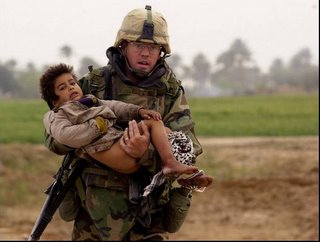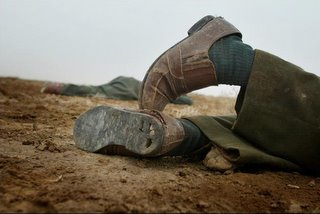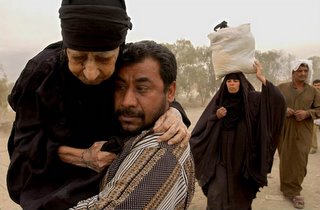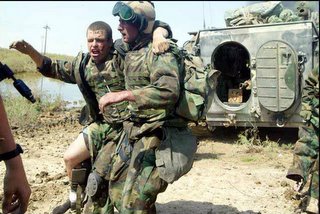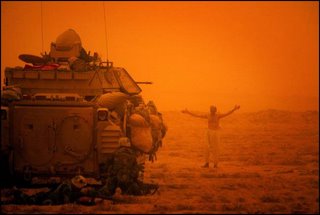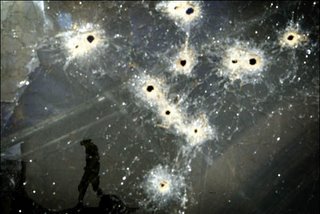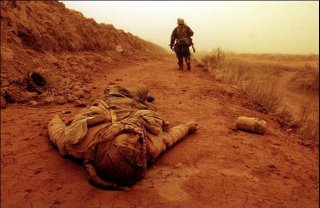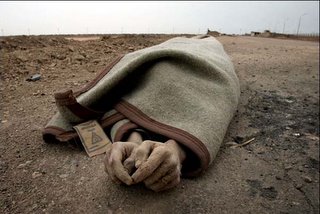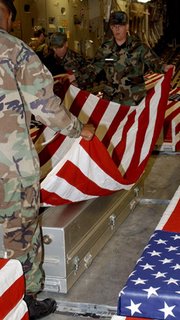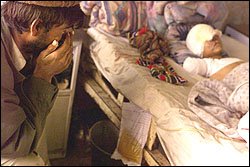 Saed Hassan and nephew Noor Mohammad, who lost his sight and hands in strikes on the Agam region.(Globe Staff/Dominic Chavez)
Saed Hassan and nephew Noor Mohammad, who lost his sight and hands in strikes on the Agam region.(Globe Staff/Dominic Chavez) In the Fall of 2005 Daniel Maguire, Professor of Ethics at Marquette University, delivered a lecture entitled The Lies of War. He dedicated his talk to a 10-year-old Afghan, Mohammed Noor. The boy was having Sunday dinner when an American bomb struck his home. He survived but with the loss of both eyes and both hands. Dr. Maguire reminded his audience, “The sightless eyes of this child should haunt us to the end of our days and sear on our souls the absolute need to not just pray for peace, but to do something to make it happen.”
Of his experience with the war in Vietnam Ralph McGehee, a former CIA intelligence analyst has written, “I hated my part in the charade of murder and horror. My efforts were contributing to the deaths, to the burning alive of children - especially the children. The photographs of young Vietnamese children burned by napalm destroyed me."
As a veteran of that same war, I never imagined that the United States would venture into creating such a murderously remorseful conflict again - preemptively, no less. During Mass one day at noon in the Quonset chapel of the field hospital south of DaNang where I was stationed, a corpsman burst into the chapel exclaiming that I was needed immediately in triage. I had just consecrated the bread and wine so I excused myself from the gathering, telling them to receive the Body and Blood of Jesus directly from the altar. I received the consecrated bread as I hurried to the triage area in alb and stole. When I returned to the chapel about an hour later, the paten and chalice were still on the altar. Some of the Blood of Christ remained in the chalice. I consumed it and sat down to collect my thoughts. That’s when I noticed that the alb I was wearing had been stained with many drops and smudges of blood. I had not only drunk the Precious Blood but I was wearing it.
Recalling and reflecting on Jesus’ passion and death reminds us of his continued suffering in human beings enduring the violence of war. It must also inspire us “to do something to make (peace) happen.”
As you pray each Station, please keep Mohammed in mind – and all the other children - and adults - who have become victims of U.S. military action in Afghanistan and Iraq. Include in your praying the many seriously wounded and maimed casualties of those of every nation involved in the conflict - and all those mourning dear ones killed in the war.
Rev. Sebastian L. Muccilli

